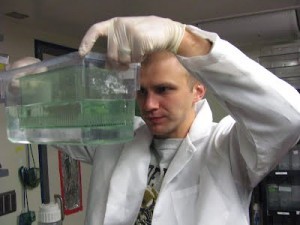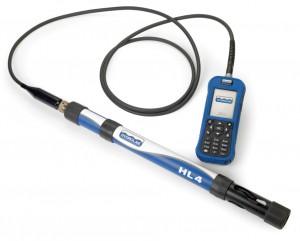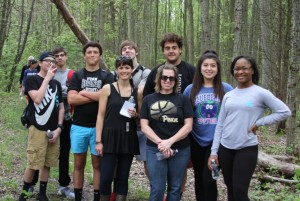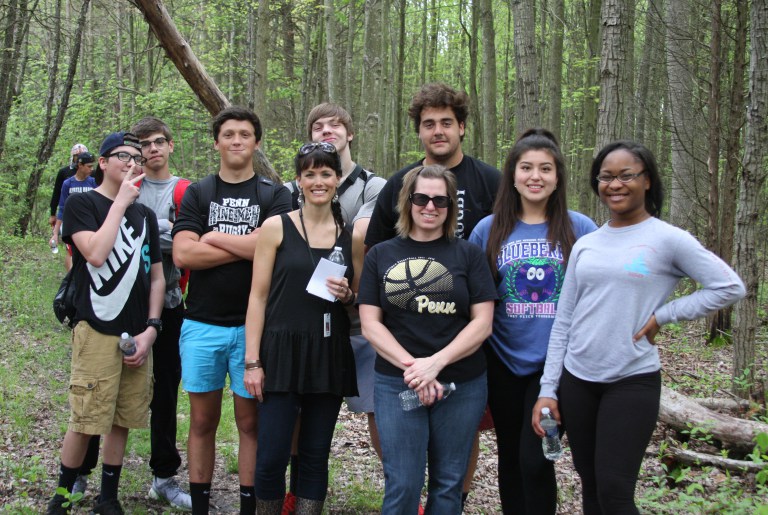In early May, 90 students got to spend their school day enveloped in nature. While there, the students provided data for a restoration project in Cobus Creek, Osceola. The sophomores from Penn High School used an EPA motoring tool called the hydrolab, a multiparameter water quality instrument, used for and their own written observations to collect the data.They visited six stations over the course of several hours.This project gave students a real life look into Indiana wildlife,spend a day hiking through the woods, and get students thinking about ways to reduce waste in the environment.

Penn freshman biology teacher and 2016’s teacher of the year, John Gensic, organized the trip to Cobus Creek, finding out about the hydrolab technology through a week-long shipboard teacher workshop on Lake Michigan last summer. Using the website, Limno Loan, they borrowed the equipment used to test water quality parameters. Reflecting on the trip, Gensic mentioned “Many of the students have never been here, this was also a great opportunity for them to take part in a real-world restoration project,”.

The hydrolab tool has capabilities measuring Ph, temperature, depth, conductivity, & turbidity among others with applications for freshwater rivers and streams, lakes and reservoirs, and groundwater wells as well as saltwater bays and near-costal areas.The students reported this data to Jeremy Reiman, an environmental planner with the St. Joseph River Basin Commission.
During another activity, Kristin TePas and Allison Neubauer, members of the Illinois-Indiana Sea Grant (IISG), explained to the students why they should be aware of how long everyday products, such as plastic bottles and disposable diapers, take to degrade in the environment.The students also discussed ways to not only use less products, but not as frequently.The students also learned about electrofishing from Elkhart biologists who had samples of fish and other wildlife to share with the students.
The fieldtrip was a sucess and helped students learn through activities they enjoyed to according to Gensic, and with the results being as positive as they are, this will open up a new door for teaching biology at Penn High School, and with years to come, there’s only room for further enrichment. For more information or if you want to contact Gensic, email him at jgensic@phm.k12.in.us.


